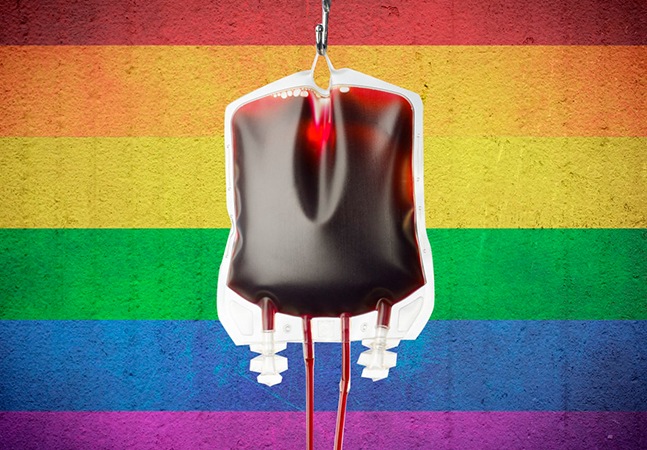RIO DE JANEIRO, BRAZIL – This week the state of Rio de Janeiro will promote its first blood donation campaign aimed at the lesbian, gay, bisexual, transsexual, transvestite and intersex population (LGBTI). The initiative is designed to commemorate LGBTI Pride Day, celebrated yesterday, June 28th, and the Federal Supreme Court’s (STF) ruling suspending restrictions on blood donations by homosexual men.

The donation campaign will take place at the Pedro Ernesto University Hospital (HUPE) blood banks in Vila Isabel, the Santa Casa in Barra Mansa, and São João Batista Hospital in Volta Redonda.
At HUPE, the campaign will be held between June 29th and July 3rd, and in order to prevent crowds and comply with safety guidelines during the pandemic, donations will need to be pre-scheduled, observing the limit of 20 per day. In Volta Redonda, the campaign will start on June 30th and will run until July 3rd, and in Barra Mansa, donations will only be collected today, June 29th.
The undersecretary for Promotion, Defense, and Guarantee of Human Rights of the Rio de Janeiro State Secretariat for Social Development and Human Rights, Thiago Miranda, stresses that following safety guidelines, such as the use of masks and social distance, is required. “Donating blood and saving lives has always been a desire of many, but prejudice has always been an obstacle. Let’s knock down this obstacle and promote this campaign together,” he celebrates.
The State Secretariat for Social Development and Human Rights advises: donors must be healthy, between 16 and 69 years old, and must present a photo ID. Those under 18 years of age must have authorization and a document from their parent or guardian. In addition, donors must weigh at least 50 kilos, without fasting, avoid fatty foods three hours prior, and have slept at least six hours.
The minimum interval between donations is two to three months. For other recommendations and impediments to blood donation, donors should access the Ministry of Health website.
Restrictions on blood donations from men who have sex with other men precluded gay and bisexual men from donating blood if their last sexual intercourse had been less than 12 months earlier. The ban included those who claimed to have worn condoms and maintained a stable relationship with a single partner.
The decision to authorize donations was reached by a majority of the STF Justices in a vote concluded on May 8th. The magistrates ruled in favor of a class action lawsuit filed by the PSB (Brazilian Socialist Party), and decided that the restrictions on donations by men who have sex with other men were unconstitutional. The decision nullified Ordinance 158/2016 of the Ministry of Health and Resolution RDC 34/2014 of the National Health Regulatory Agency (ANVISA).
The rapporteur, Justice Edson Fachin, ruled that the safety guarantee of blood banks should be sought with requirements based on risk practices rather than donors’ sexual orientation, which he classified as “unjustifiable and unconstitutional discrimination”.

